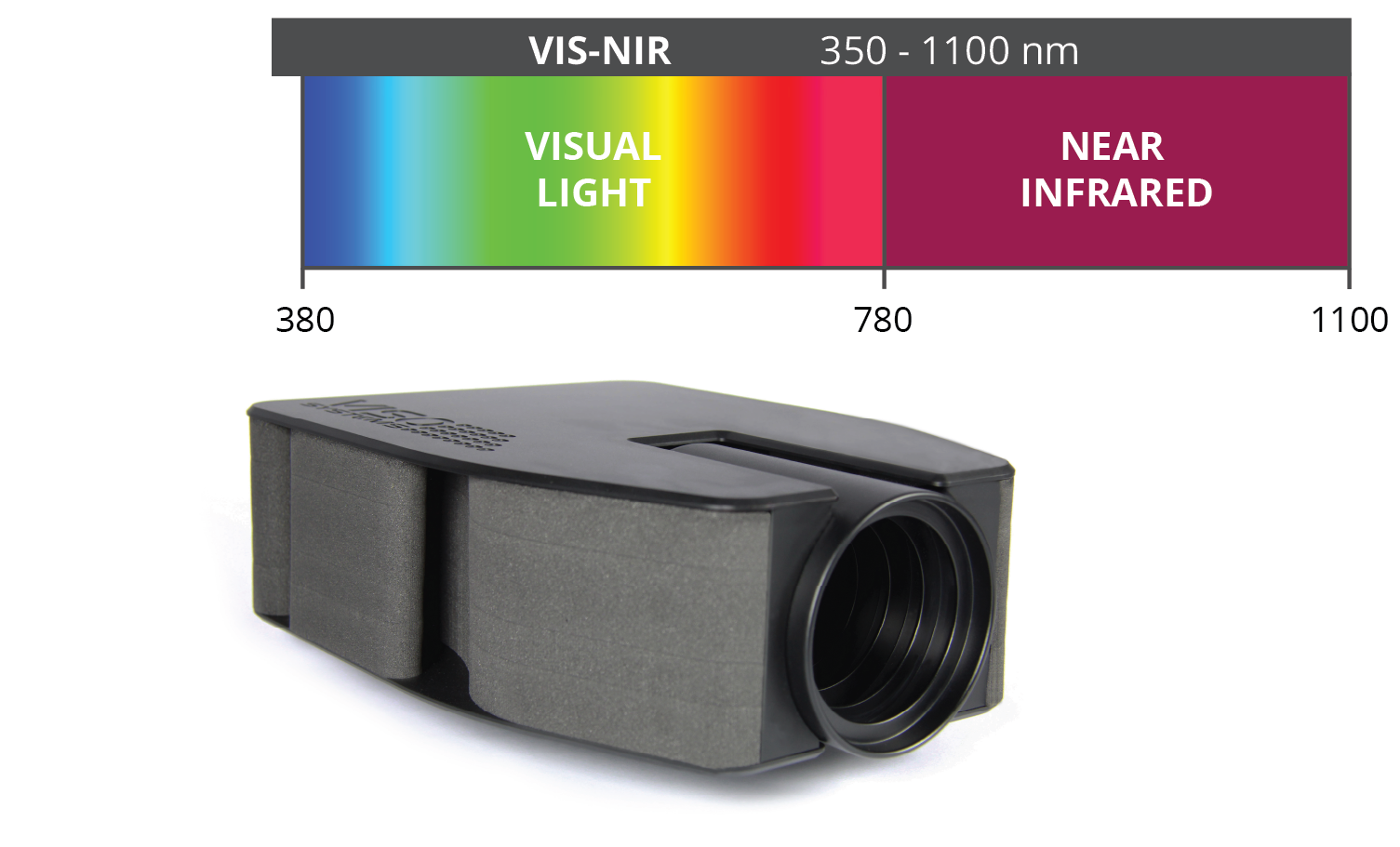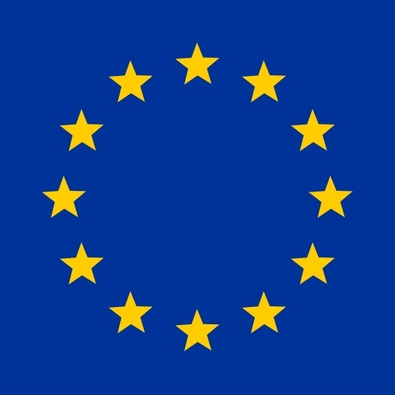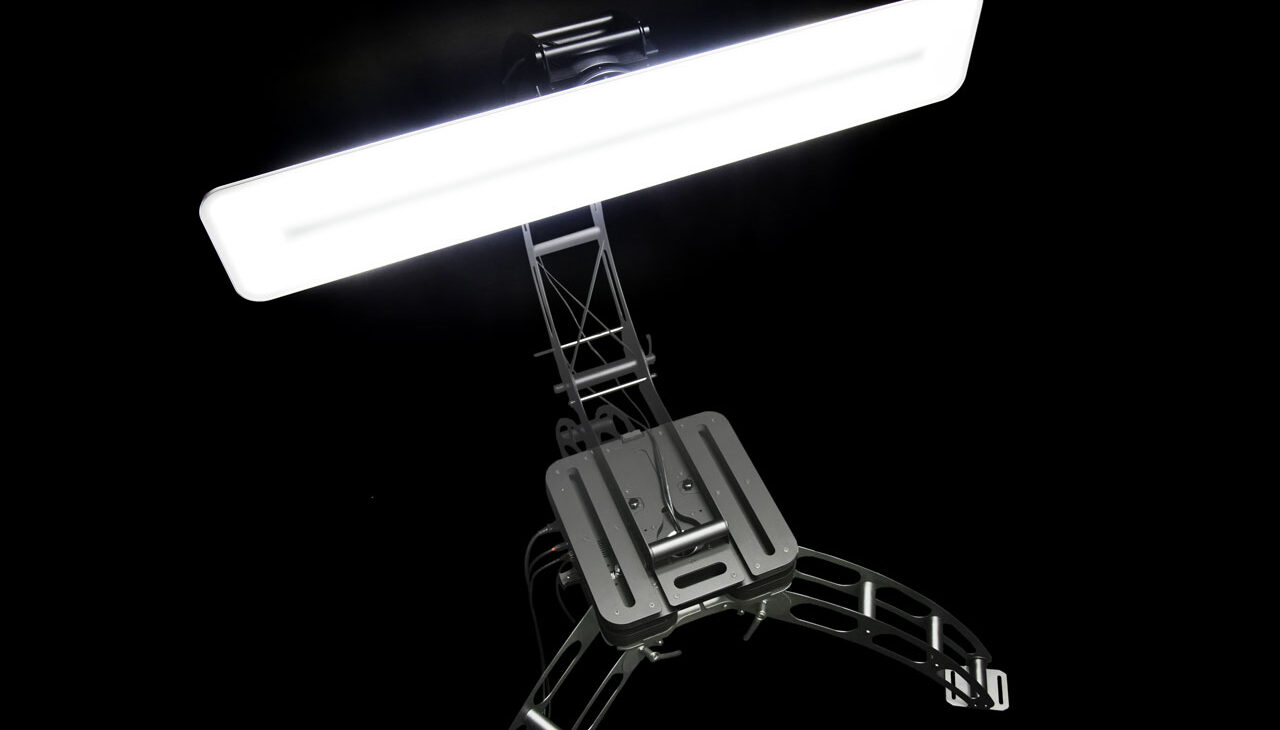
LabSpion® is a complete light measurement solution that covers all light sources from small lamps and LED chips to large panels and street lighting. The 2-axis LabSpion goniometer allows the system to measure the entire 3D distribution field for any light source. Using a spectrometer sensor and a built-in power analyzer, the unique Viso technology enables fast measurements and ensures that all data is measured quickly. The system gives you all photometric data as well as data that integration spheres provide in one measurement. Comprehensive LDT and IES simulation files are standard outputs.
LabSpion goniometer is the ideal way to measure a wide variety of light sources ranging from outdoor fixtures to automotive lights and LED panels. The light source is easily attached to the goniometer and rotation is both quick and silent. Most importantly, the LabSpion handles light sources up to 25 kg and 1.5 m in diameter. The heavy-duty 2.0 m tower version even handles light sources up to 45 kg and 2.0 m in diameter.
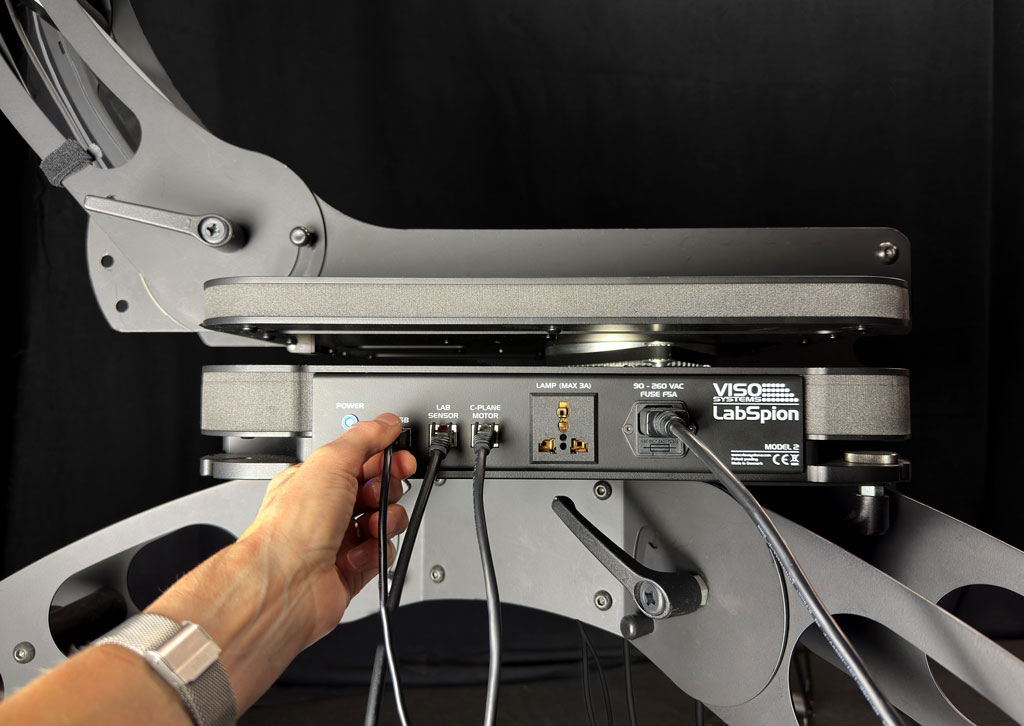
The installation process is very simple too. Place and level the base of the LabSpion goniometer on a stable surface in a dark room. Mount the goniometer arm on the base. Connect cables to the built-in mainboard.
The spectrometer sensor is easily mounted on a tripod and is placed at a distance depending on the size of the measured lighting fixture. The laser meter automatically detects the distance between the two parts, so the alignment is quick and precise. The whole system can be installed and be fully operable in less than 30 minutes.
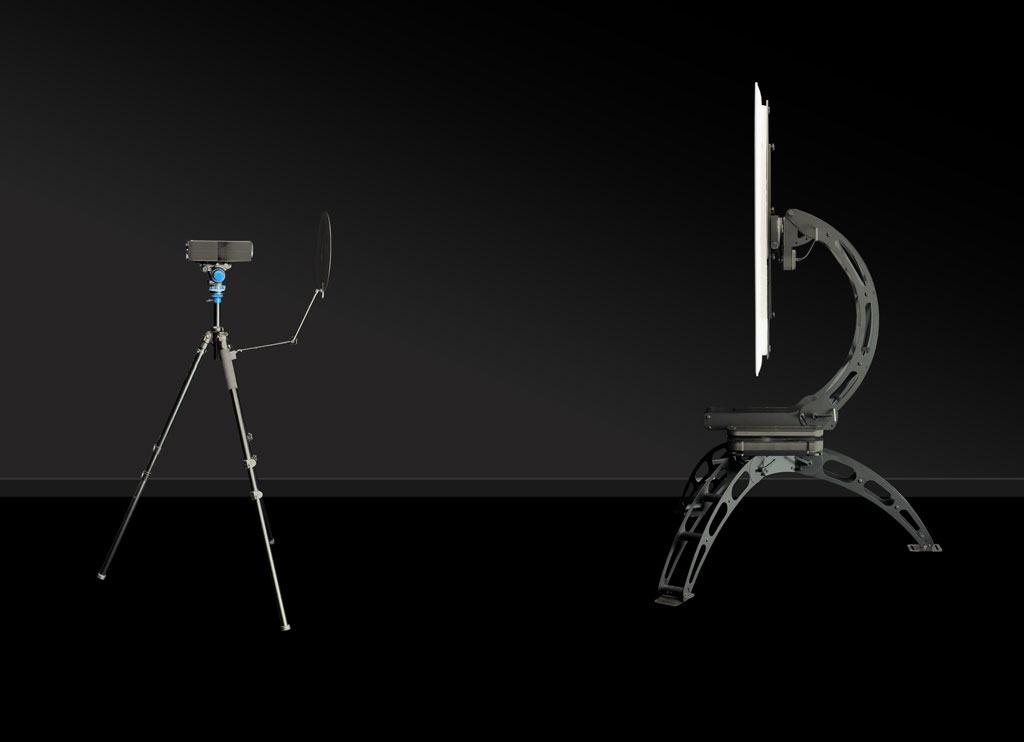
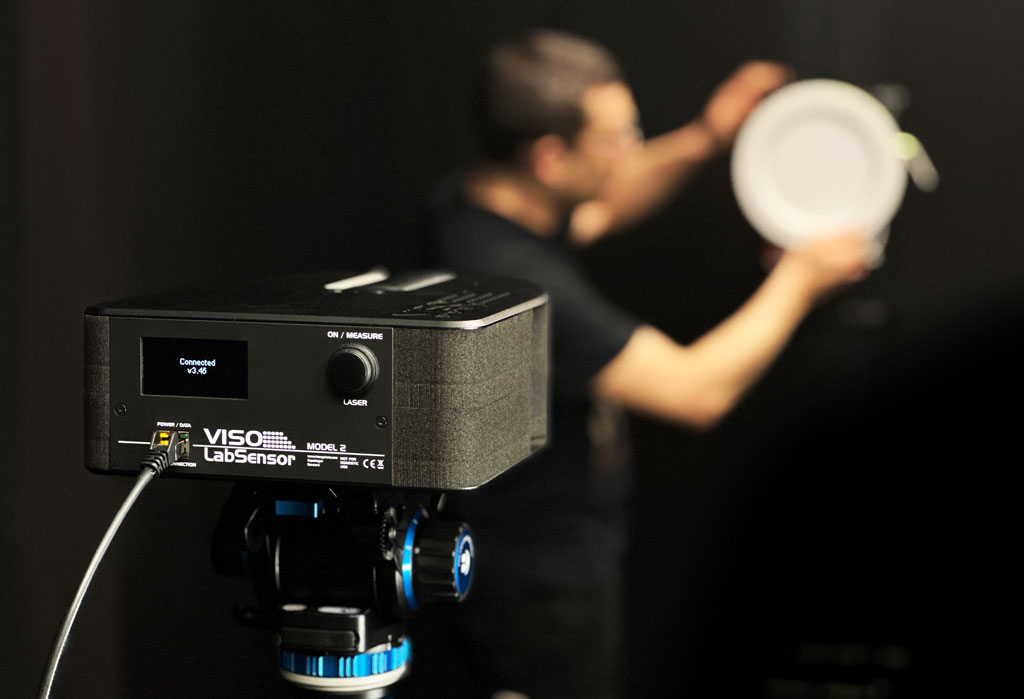
Install the Viso Light Inspector software, connect your laptop to the built-in power analyzer in the base, and start measuring. The process is fast and automatic with the option of manual operation. Data acquisition from a single C-plane takes 15-30 seconds, which means that most measurements take 2-10 minutes.
Orgininal measurement data is in the form of Viso “.fixture files”. Export to serveral customizable formats such as PDF, PNG, IES, LDT and CSV formats. You can create your own custom PDF report templates. Read more about the Light Inspector software here.
Advantages
Get IES files and get LDT files the easy way
Measures light sources up to 25 kg and up to 150 / 200 cm (5 / 6.5 ft)
Fits into relatively small laboratories
All color and lumen data – no integrating sphere needed
An advanced system which is very easy to operate
Output as customizable reports or raw data
Make your own calibrations with CALI-T50 (included)
Can be upgraded to include ultraviolet light with LabSensor UV-VIS to LabSpion UV-VIS
Main applications
Downloads
Get more information
LabSpion goniometer specifications
Measurement method
Far field, type C horizontal
Source-rotating
(+type B through software)
All spectrometer ranges
VIS: 360 – 830 nm (standard)
UV-VIS: 200 – 830 nm
UV-VIS-NIR: 200 – 1100 nm
VIS-NIR: 360 – 1100 nm
Sensor distance range
80 cm to ‘infinite’
(2.6 ft to ‘infinite’)
Distance depends on light source
Sensor setup
Sensor on tripod (standard)
Sensor on
LabRail (automatic)
Capacity /Tower models
1.5 m (4.9′)
/ 25 kg (55 lbs) (standard)
2.0 m (6.6′)
/ 25 kg (55 lbs) (extended)
1.5 m (4.9′)
/ 45 kg (99 lbs) (heavy load)
2.0 m (6.6′)
/ 45 kg (99 lbs) (heavy, ext.)
Included accessories
REF-800
CALI-T50 or
CALI-DT300 (UV sensors)
Special E27 holder
Power supply input
Universal: 90 to 260 VAC, 50/60 Hz
Single-phase, grounded
Lumen, Peak candela, CCT, Spectrum, CRI, TM30, CQS, Beam angle, 3D Light Distribution, Power Specs, lm/W.
Read more
here
Sensor models
Choose between four different sensors to fit your measurement needs
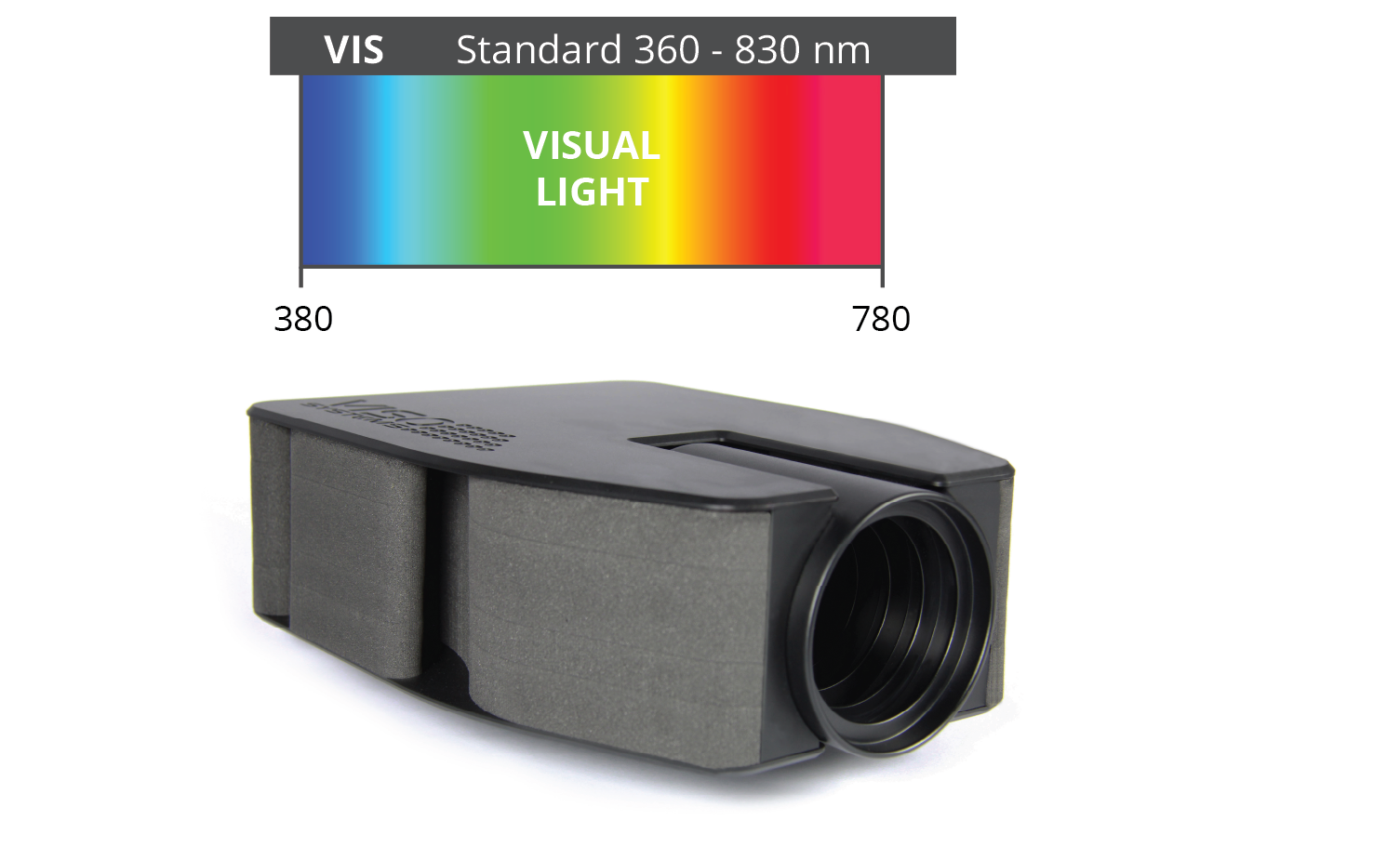
Our most popular LabSpion sensor that covers the whole visual spectrum and a little more (360-830 nm).
This sensor is great for General Lighting, Entertainment Lighting, Growth Lighting, LED Lighting, Automotive Lighting etc.
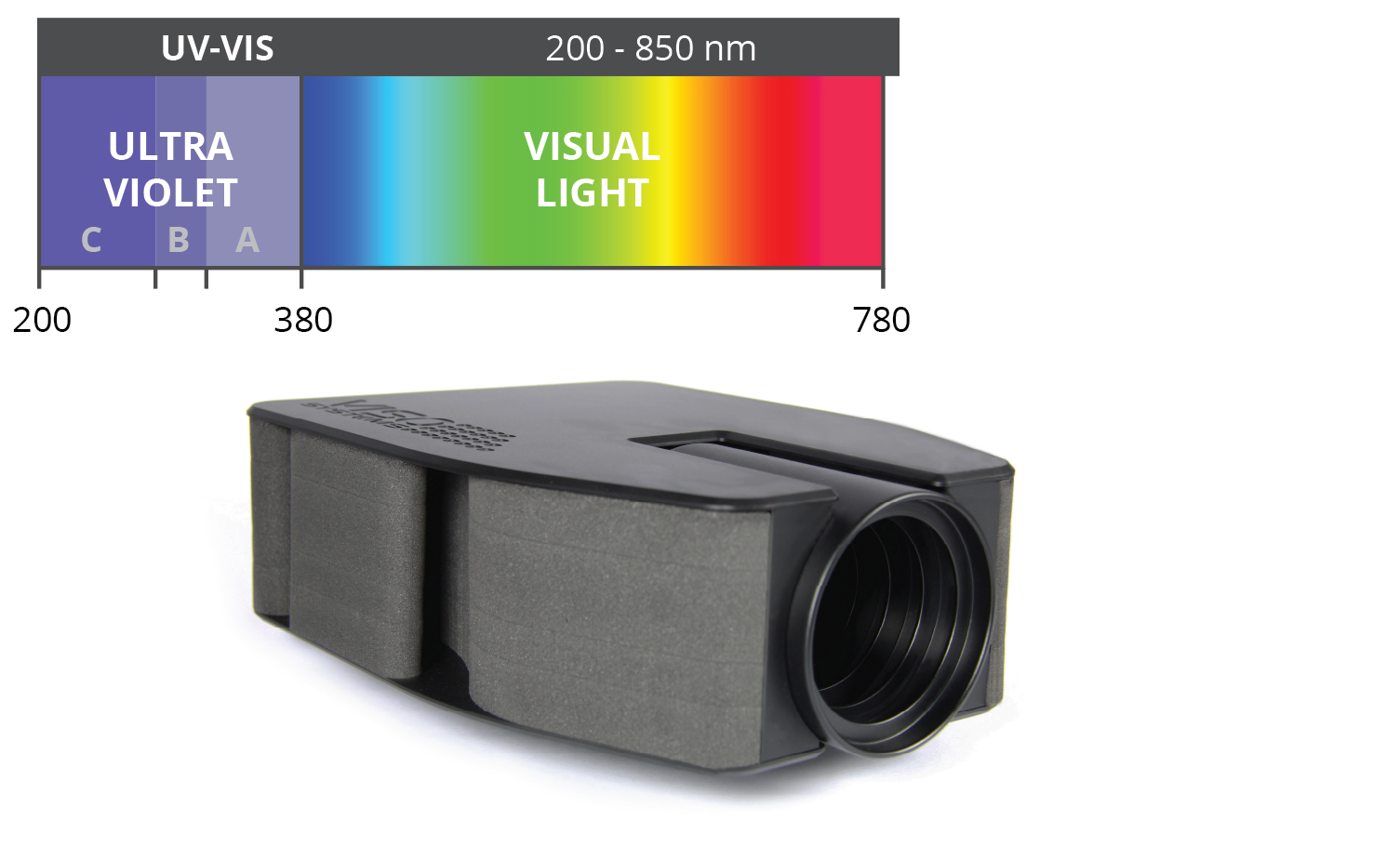
The UV-VIS solution 200-850 nm fits all laboratories that need to measure light in UV applications – desinfection, curing etc.
Read about Viso UV special design here.
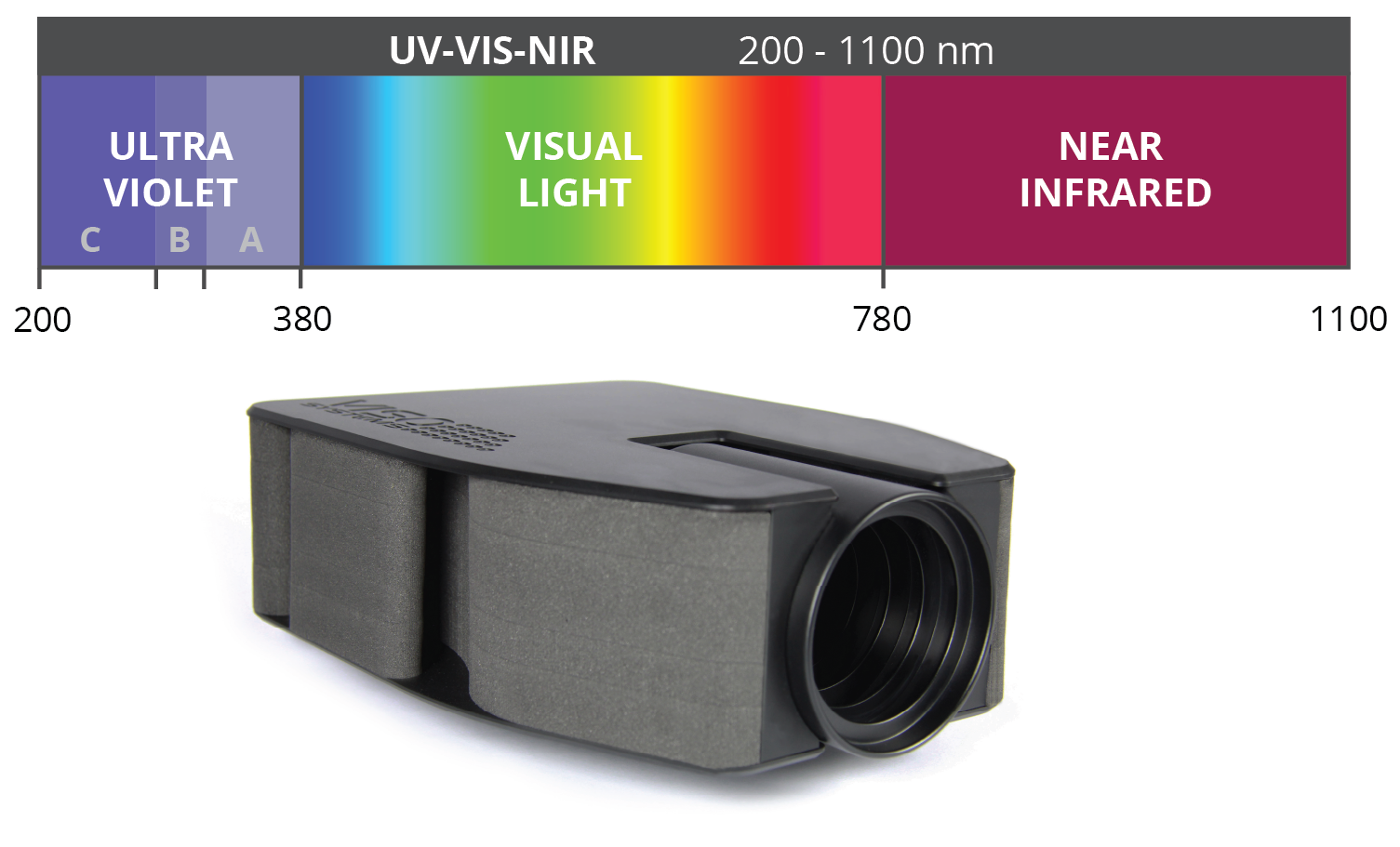
Our most versatile LabSpion sensor that detects light from 200-1100 nm – all the way from UV to near infrared.
This is the future-proff solution for university laboratories and other advanced laboratories. Read more here.
Popular additions
Add great tools to your system, capture more data and ease your work
The LabFlicker instrument records all contemporary flicker metrics including SVM and PstLM and connects to all Viso systems
Easy positioning of your LabSpion sensor. Replace your tripod with a rail-mount for your sensor including distance detector and LabTarget
Remove that last bit of straylight (“false” light reflected from ceiling/floor/walls) from your measurements with the LabDisc baffle.
A typical LabSpion setup
The setup will look more or less like this – but let’s discuss the best solution. Send your request directly to Viso Systems.

